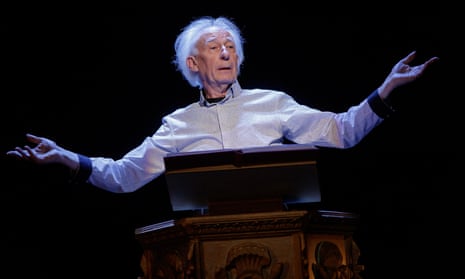The fraught business of installing a new Catalan government begins on Wednesday but in the meantime Tabarnia, a fictitious but increasingly popular region that wants independence from Catalonia, has sworn in an actor and theatre producer as its first president.
The move by the broad coastal strip from Tarragona to Barcelona – hence the name – is a good-humoured backlash against what many see as the imposition of an independence agenda on a part of Catalonia that has never voted for secessionist candidates.
The idea that the biggest cities are politically distinct from rural Catalonia is not new, but Tabarnia suddenly went viral on social media over Christmas with more than 600,000 mentions on Twitter on Boxing Day, and tens of thousands signed a petition in favour of independence from Catalonia.
Tabarnia uses the same arguments and language to justify its independence from Catalonia as Catalan separatists use to demand independence from Spain. Its slogan – “Barcelona is not Catalonia” – echoes the secessionists’ own “Catalonia is not Spain”.
Tabarneses – as they have been officially dubbed by the Royal Spanish Academy – also insist the Barcelona area does not benefit from the wealth the city creates, much as Catalan separatists complain the region contributes more to the Spanish state than it gets back.
At a packed meeting in central Barcelona, Albert Boadella was sworn in via video link from his “exile” in Madrid, a dig at Carles Puigdemont, who is insisting on his right to be invested as Catalan president via a similar link-up from Brussels.
Boadella, 74, who was one of Catalonia’s leading theatre directors,abandoned Barcelona for Madrid in 2007, claiming his work was being boycotted by nationalists.
“They have divided Catalonia and Spain and, if they’re allowed to, Europe,” he said in his inaugural speech as president. “There is room for everyone in Tabarnia.”
“We will go as far as the secessionists have gone,” Jaume Vives, a journalist and Tabarnia spokesman, told the meeting. “Tabarnia will become secessionism’s nightmare just as they have become ours. We are a side-effect of the process. We are multicultural, free, Spanish and European.”

Tabarnia has brought a sense of humour to a tense and stressful political climate – for non-secessionists at least – but it remains a fiction. The real business of state begins on Wednesday, when the Catalan parliament has to elect a speaker and a parliamentary committee.
In normal circumstances this would be straightforward: the party with the most seats gets to appoint the speaker and the rest of the committee represents the other parties.
However, Puigdemont’s choice of speaker, Carme Forcadell, has chosen not to stand. She has been released on €150,000 (£133,000) bail over charges relating to her role as speaker in the last parliament when it unilaterally declared independence.
Others have also backed away from the speaker’s job, fearing it may be a poisoned chalice.
The three pro-independence parties have a majority between them and Puigdemont is their candidate for president. However, the Catalan parliament’s own lawyers say he cannot be sworn in via video and has to present himself in parliament. Puigdemont knows he will be arrested the moment he sets foot on Spanish soil.
If Puigdemont cannot present his candidacy, the next in line is Inés Arrimadas, the Citizens party leader. Her party won 36 seats, two more than Puigdemont’s, but there is no way she can scrape together a majority in the 135-seat parliament.
A further complication is that, while a judge has ruled that Oriol Junqueras, the other main independence leader, and two other MPs on remand in prison, can delegate their votes, Puigdemont and his four colleagues in Brussels cannot – potentially leaving the pro-independence parties without a majority.
Fresh elections will be held if a government cannot be formed.
